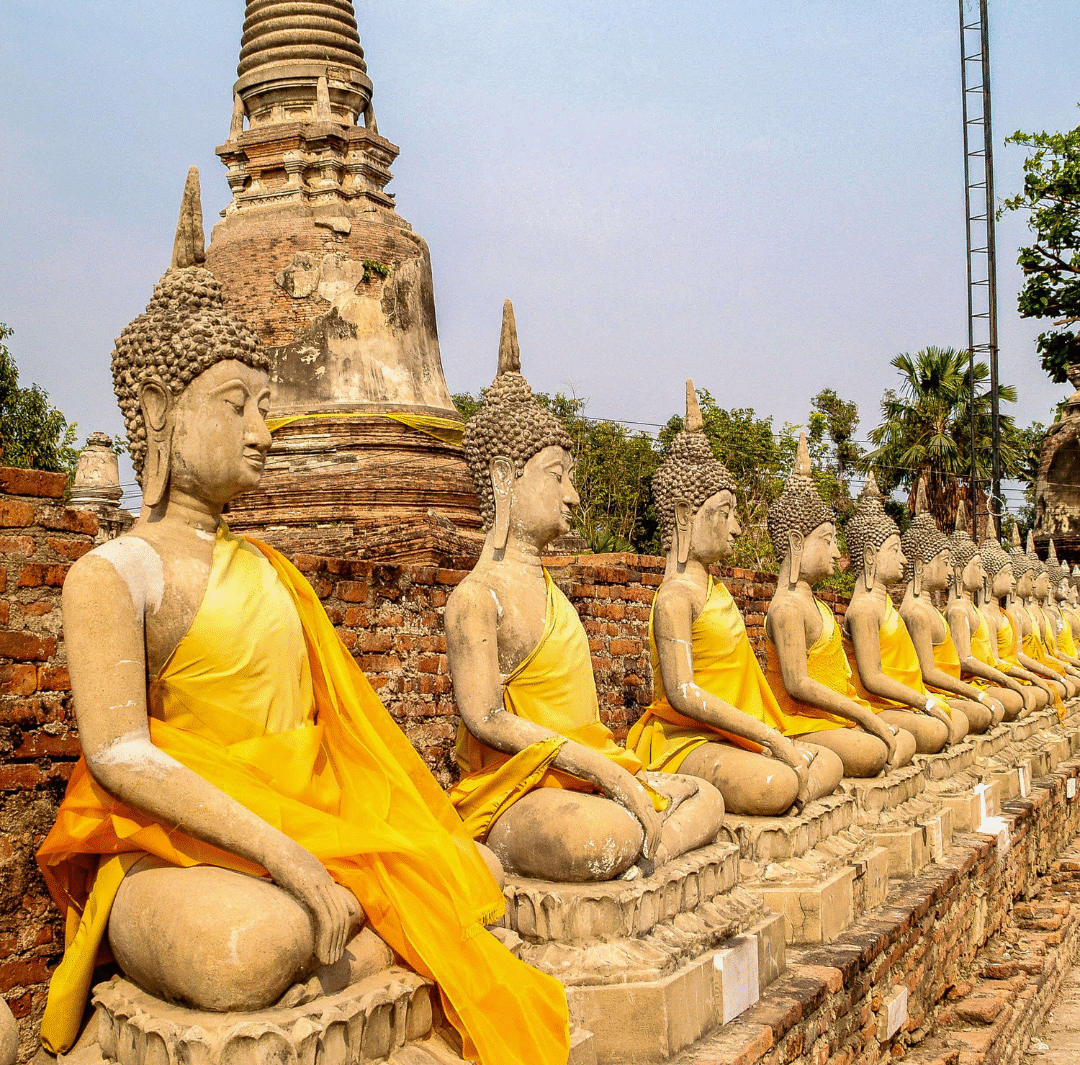Exploring Thai Culture: A Vibrant Tapestry of Tradition and Modernity
Thailand, often called the “Land of Smiles,” continues to captivate travelers with its rich cultural heritage, stunning landscapes, and dynamic blend of ancient traditions and modern vibrancy. In 2025, Thailand’s cultural scene is thriving, with fresh developments in its cuisine, Buddhist practices, temple restorations, and bustling night markets that reflect the nation’s enduring spirit and evolving identity. Here’s a look at the latest in Thai culture, cuisine, temples, and markets, offering a unique perspective on this Southeast Asian gem.
Thai Culture: A Living Legacy
Thai culture is a dynamic fusion of ancient customs and contemporary influences, shaped by centuries of Buddhist philosophy, royal traditions, and regional diversity. In recent months, Thailand has seen a surge in cultural preservation initiatives. Local communities, supported by government programs, are revitalizing traditional crafts like silk weaving in Isaan and wood carving in Chiang Mai. In July 2025, the Thailand Cultural Ministry launched a nationwide campaign to teach young Thais the art of traditional mask-making for Khon dance dramas, ensuring this intricate craft remains alive. These efforts highlight Thailand’s commitment to honoring its roots while embracing global influences, as seen in Bangkok’s street art festivals, where local artists blend traditional motifs with modern graffiti.
Festivals remain a cornerstone of Thai culture, and 2025 has brought new twists to beloved celebrations. The annual Rocket Festival in Yasothon, held in May, saw record attendance this year, with villagers launching elaborately decorated bamboo rockets to pray for rain, accompanied by modern drone light shows that added a futuristic flair. Meanwhile, cultural exchange programs have grown, with Thai dance troupes performing at international festivals in Europe and Asia, showcasing the graceful movements of Lakhon and the dramatic storytelling of Ramakien.
Thai Cuisine: A Global Culinary Star
Thai cuisine, renowned for its bold flavors and balance of sweet, sour, salty, and spicy, continues to evolve while staying true to its roots. In 2025, Thailand’s culinary scene is buzzing with innovation. Bangkok’s Michelin-starred restaurants, like Sorn and Le Du, are experimenting with hyper-local ingredients, such as rare herbs from the northern highlands and seafood from the Andaman Sea, to create dishes that celebrate Thailand’s biodiversity. Street food remains a cultural staple, with Chiang Mai’s Chang Phueak Market introducing a new “zero-waste” initiative in June 2025, where vendors repurpose food scraps into compost for local farms.
A notable trend this year is the rise of plant-based Thai cuisine, driven by both health-conscious locals and international demand. In Phuket, vegan versions of classics like green curry and som tam (papaya salad) are gaining popularity, with restaurants like Ban Rim Nam using jackfruit and bamboo shoots as meat substitutes. Additionally, Thailand’s culinary schools are expanding their reach, offering virtual cooking classes to global audiences, teaching how to perfect dishes like tom yum and mango sticky rice from home.
Buddhist Temples: Sacred Spaces in Modern Times
Buddhism, practiced by over 93% of Thais, remains the heartbeat of the nation’s spiritual and cultural life. In 2025, Thailand’s temples, or wats, continue to serve as community hubs, places of worship, and architectural marvels. Recent restoration projects have brought renewed attention to historic sites. Wat Arun, the iconic Temple of Dawn in Bangkok, completed a major renovation in April 2025, unveiling vibrant ceramic mosaics that shimmer along the Chao Phraya River. Similarly, Wat Phra That Lampang Luang in the north underwent structural reinforcements to preserve its 13th-century Lanna architecture, drawing pilgrims and tourists alike.
Temples are also adapting to modern needs. In Chiang Rai, Wat Rong Khun (the White Temple) introduced an interactive digital tour in July 2025, allowing visitors to explore its surreal art and Buddhist symbolism through augmented reality. Meanwhile, meditation retreats are flourishing, with temples like Wat Suan Dok in Chiang Mai offering eco-friendly retreats that combine mindfulness with sustainable living practices, appealing to a new generation of spiritual seekers.
Night Markets: The Pulse of Thai Social Life
Thailand’s night markets are vibrant showcases of culture, food, and community, and they continue to evolve in exciting ways. In 2025, Bangkok’s Train Night Market Ratchada has expanded with a dedicated artisan zone, where vendors sell handmade jewelry, ceramics, and textiles alongside classic street foods like grilled squid and mango sticky rice. The market’s new solar-powered lighting, introduced in March 2025, reflects Thailand’s push toward sustainable tourism.
In southern Thailand, Krabi’s Walking Street Night Market has gained fame for its live music performances, featuring local bands blending traditional Thai instruments like the khene with modern genres like indie rock. These markets are more than just shopping destinations; they’re cultural melting pots where locals and tourists mingle, sharing stories over steaming bowls of khao soi or refreshing coconut drinks. Smaller markets, like Udon Thani’s UD Town, have also embraced technology, with vendors now accepting digital payments and offering QR-code menus to cater to international visitors.



